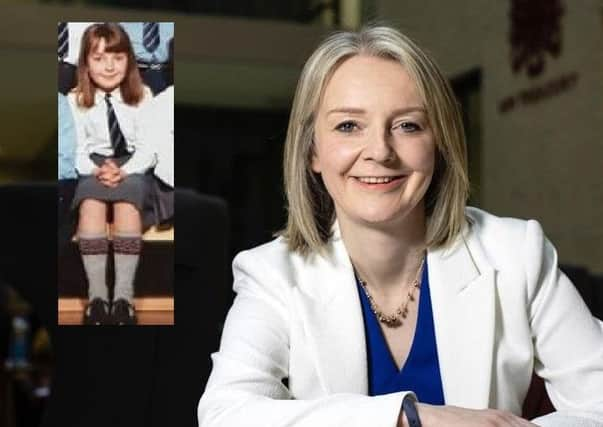Liz Truss: I played Margaret Thatcher at my primary school in Paisley


What a turnaround we have seen over the last few decades. We have a growing group of Conservative MSPs in the Scottish Parliament, meanwhile, Ruth Davidson, the leader of the Scottish Conservatives, is polling ahead of Nicola Sturgeon. And we have been joined by 13 brilliant new Conservatives MPs in the UK Parliament. Being a Tartan Tory is back in vogue.
Having spent some of my most formative years here, I know that Scottish people have always been ambitious and entrepreneurial, individual and innovative, leading the world in ideas and economic progress. If it weren’t for Scots, Conservatives wouldn’t have the ideas, the leaders or the legacy we have today.
Advertisement
Hide AdAdvertisement
Hide AdIn the 18th century, Scotland became an industrial powerhouse, exporting the best of the country to the four corners of the Earth. As time went by, Scotch whisky went global, Scottish tweeds went around the world, and Scottish salmon landed on plates from Asia to America. Paisley became famous the world over for that distinctive tear drop pattern. That national pride and that belief in commerce persists today.
With Ruth Davidson offering a bold vision for Scotland’s families, communities, businesses and young people, the Scottish people have come home to a party that is positive about the future.
The traditional building blocks of the Scottish economy remain important. For example, in 2017, we had record-breaking whisky exports, with 1.23 billion bottles exported globally, equivalent to £4.37 billion. Anyone who has seen the activity in Aberdeen harbour, where scores of boats come in and out every week, would know that oil and gas is still very important to the economy, supporting 280,000 jobs across the UK.
But those powerhouses are being complemented by new industries and capabilities. Across Scotland, the services sector now contributes £50 billion a year to the UK economy.
And Scottish exports are growing in all sectors. They were worth more than £28 billion in 2017, up from 2016 when they were worth £24 billion. In the first half of 2018 Scotland has already exported more than £14 billion goods, up on last year.
The innate Scottish intellectual energy is coming to the fore, and entrepreneurs with new ideas are making their way.
One example of this is at Codebase, in Edinburgh, where later today I’ll meet just some of the 100 tech firms who call the UKs largest technology incubator their home. It’s the innovative firms under this roof that are the new Scottish success stories.
We want those success stories to have maximum impact here in Scotland. That’s why we have updated the devolution settlement to give the Scottish Government freedom to make its own tax and spending decisions.
Advertisement
Hide AdAdvertisement
Hide AdSoon, half the Scottish Government’s budget will be determined by receipts raised in Scotland, which means local people can reap the rewards of their hard work.
The UK government is committed to Scotland by giving it the vital ingredient for success: freedom.
We are also giving cities more freedom. Since 2014, we have committed more than £1 billion towards Scotland’s City Deals, giving communities the resources they need to kick-start growth and regeneration and create high-skilled jobs in cutting-edge industries like robotics.
While in Scotland I’ll be announcing the Moray Growth Deal, the next step in meeting our aspiration that 100 per cent of Scotland is covered by a deal. This will give local councils and businesses the chance to submit plans to government on their priorities for boosting economic growth and productivity.
We are unleashing enterprise by cutting corporation tax from 28 per cent in 2010 to 19 per cent today. With greater ability to invest in new equipment and people, businesses have flourished – there are now 61,200 more than when we came to power in 2010.
Those new businesses have created wealth and new opportunities for people. Compared to 2010, there are 197,000 more people in employment – that’s more than the population of Aberdeen.
And those who are starting businesses will be able to keep more of what they earn because we raised the personal allowance, cutting taxes for 2.4 million Scottish workers.
We know that we need to take bold action to make sure Scotland retains its place among the world’s elite.
The way to do this is by unleashing the potential and talent that already lies waiting here.